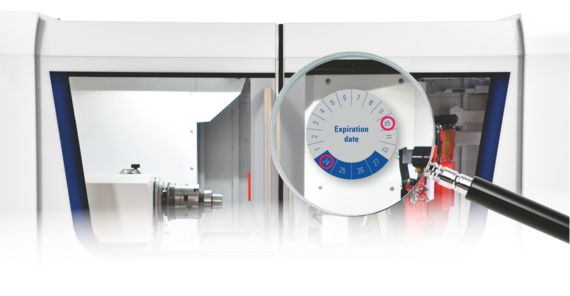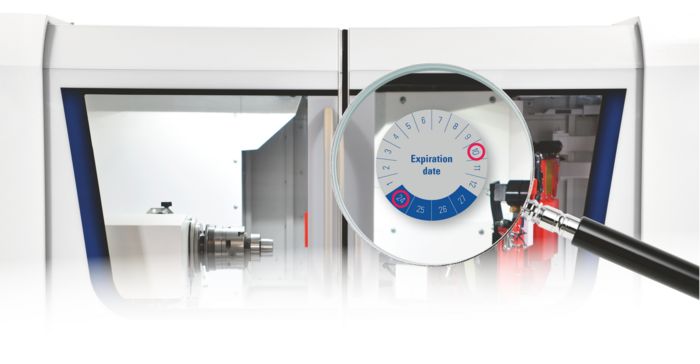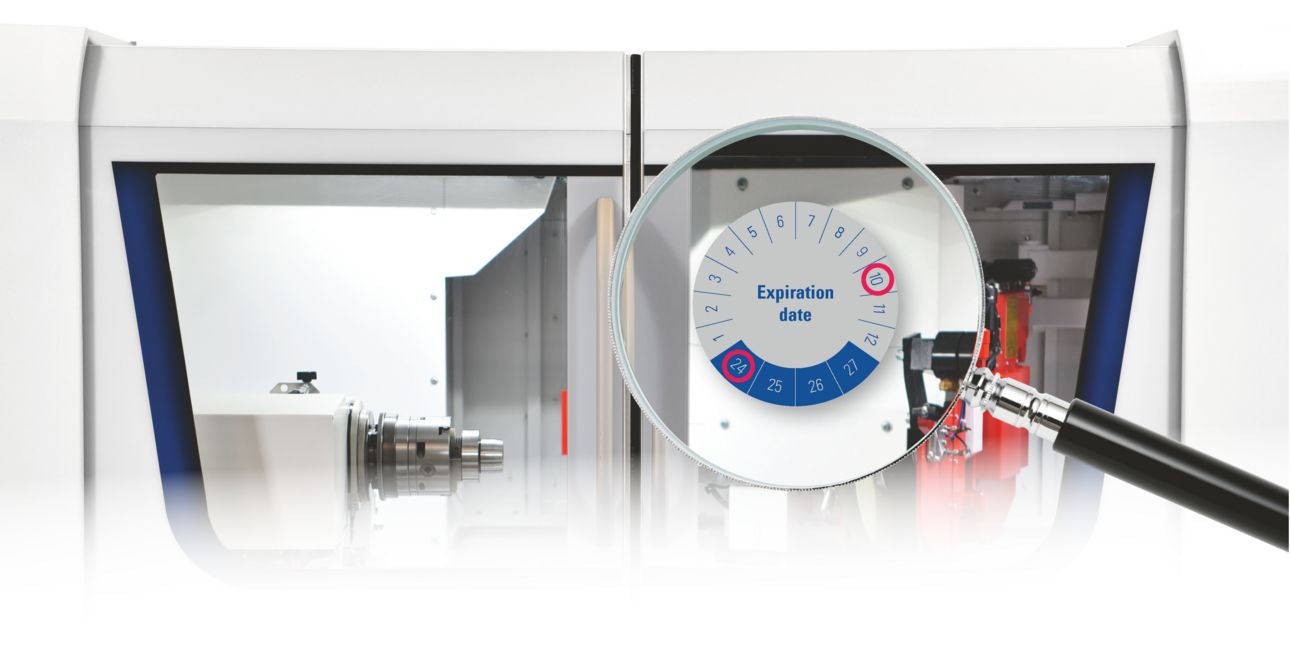Viewing windows – regular maintenance can prevent accidents
Machine tools are equipped with transparent safety windows that grant a view of the machining process and, at the same time, offer protection against coolant spray and ejected workpieces. However, their protective function is impaired the older they get. This can pose a safety risk for operators that every company needs to take seriously.
Design and function of state-of-the-art viewing windows
Safety windows, in combination with the machine enclosure or the machine door, form an important part of the safeguarding system of a machine tool. They must therefore be regarded as protection devices and safety components.
They have to perform two tasks: They must be transparent and provide as high a retention capacity as possible in the event of danger. The synthetic material, polycarbonate, best fulfills both properties and is superior to most other, similar transparent materials. For this reason, state-of-the-art machine tools are equipped with polycarbonate viewing windows and no longer windows made of silicate, minerals, plexiglass, or acrylic glass, as was customary before 1995.
If they are sufficiently thick and installed correctly, new polycarbonate viewing windows are not only capable of preventing operators from reaching into hazardous areas, but, above all, protect them from ejected chips, fragments, and coolant spray during operation. However, as they age, their retention capacity and thus their protective function decreases. This poses a significant safety risk for the operating personnel.
Timely replacement of viewing windows can prevent accidents
Polycarbonate is sensitive to coolants, unsuitable cleaning agents, and other chemicals (e.g. acetone). These substances may cause the window to become brittle. This embrittlement is usually invisible and can mean a drastically reduced retention capacity, which, in turn, represents a significant safety risk. In this case, ejected fragments or workpieces can penetrate the window much more easily, resulting in serious accidents.
Therefore, European safety standard ISO 16089 recommends that polycarbonate windows must be replaced every two years. Once the expiry date on the label affixed to the machine is exceeded, the window must be replaced as soon as possible. Regardless of the expiry date, cracks, scratches, or visible coolant infiltration, make an immediate replacement of the windows necessary, because these are signs that a progressive and already developing embrittlement is likely.
Residual risk for operators
Accidents cannot be completely ruled out, even if safety windows have been correctly installed and are serviced regularly.
When adjusting CNC machines or approaching workpieces in the production set-up, machine operators often have their faces very close to the safety window to get a better view of the machine and cutting process. Should larger fragments be ejected at this precise moment, the intact window will bulge (brittle windows will fracture) and strike the operators' faces if they are too close. Operators must therefore stand outside the likely ejection path of fragments and keep their faces away from the windows surface.
If very large fragments or entire workpieces are ejected, even a correctly installed and maintained safety window cannot always prevent an accident. The retention capacity of the safeguard is governed by the specific impact energy levels that may be exceeded by particularly large and/or highly accelerated parts. This residual risk of accidents cannot be completely eliminated.
Quick check
We are here for you!
Do you have any questions or would you like any advice on servicing or replacing your viewing windows? Contact us. We'll be happy to assist you.








